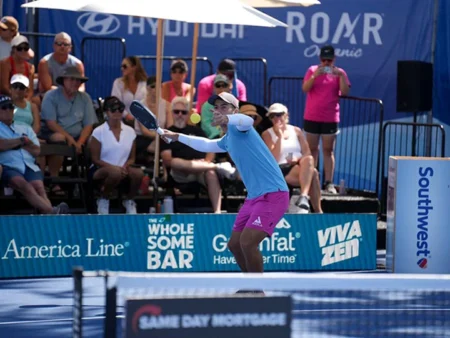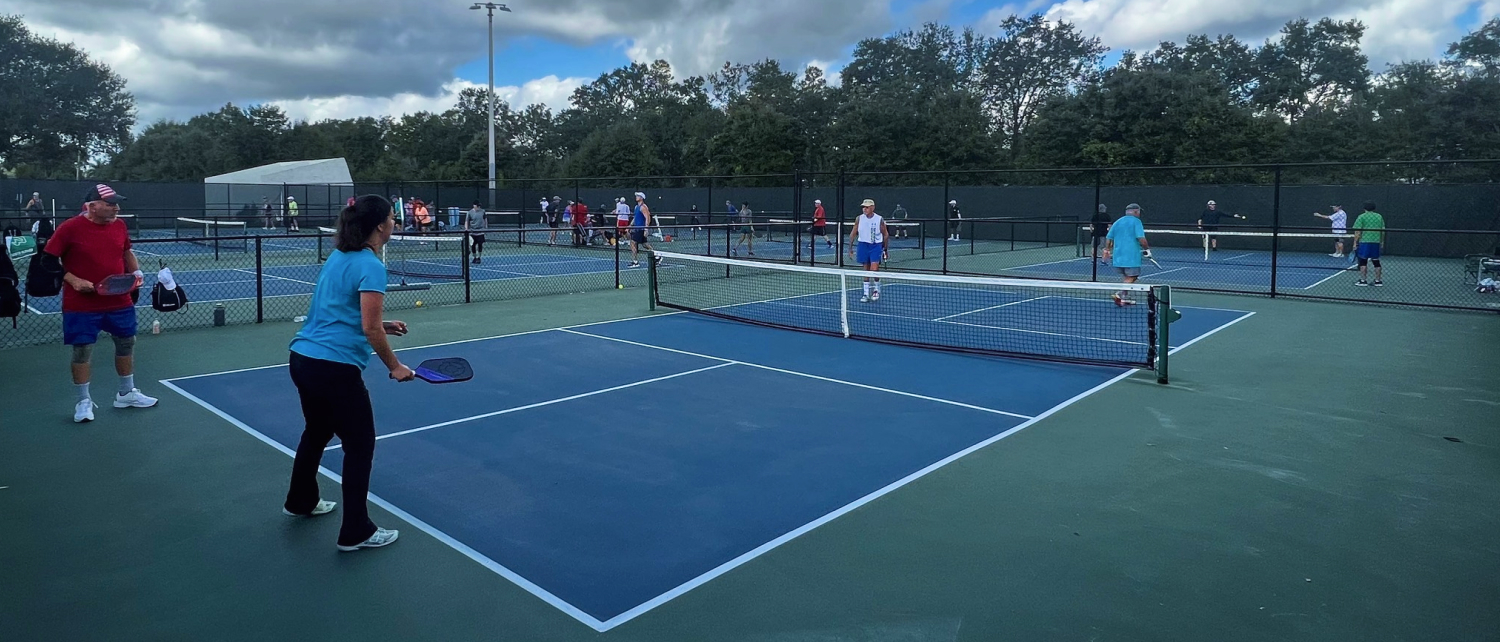Your cart is currently empty!

In the fast-paced game of pickleball, mastering the art of serving and returning the ball can significantly influence the flow and outcome of the game. This blog delves into the tactical advantages of executing deep serves and returns, crucial techniques that can elevate a player’s game from novice to expert.
Understanding the Basics
Pickleball merges the characteristics of tennis, badminton, and table tennis, unfolding on a court of badminton’s dimensions, sectioned by a net akin to that used in tennis. Participants can engage in either singles or doubles contests, with a unique scoring system that permits only the team or player serving to accrue points. This particular aspect of scoring underscores the critical role of adept serving and returning as core tactics within the sport.
The Power of Deep Serves
A deep serve in pickleball pushes the receiving player or team backward, extending their distance from the net. This positioning is strategic for several reasons:
- Increased Reaction Time: Deep serves give the serving team more time to set up and prepare for the next shot, typically the third shot drop, an essential play in pickleball strategy.
- Limiting Opponent’s Options: By forcing opponents to hit from near their baseline, their shot options are reduced. They are less likely to hit an aggressive, offensive shot from a deeper, more challenging position.
- Controlling the Game Tempo: Deep serves can slow down the pace for the receiving team, putting the server in control of the rally’s tempo.
Why Return Deep?
Just as with serving, returning the serve deep has its own set of advantages:
- Neutralizing the Server’s Advantage: A deep return can negate the server’s initial advantage, forcing them to hit their third shot from a less optimal position.
- Improving Court Positioning: By returning deep, the returning team can move to a more advantageous position near the non-volley zone, or the ‘kitchen,’ to set up for volleys and putaways.
- Pressure on Opponents: Deep returns keep the pressure on the serving team, challenging them to hit precise, high-quality shots consistently.
Execution Tips
Executing deep serves and returns requires both skill and practice. Here are some tips to improve these shots:
- Serve Techniques: Aim for a flat or slightly topspin serve targeted towards the back third of the opponent’s court. The goal is to make the serve land as close to the baseline as possible without going out.
- Return Strategies: When returning, use a controlled, firm stroke to send the ball deep into the opponent’s court. Aim for depth rather than power to keep the ball in play while pushing the opponent’s back.
The Mental Game
Beyond physical execution, deep serves and returns also play a psychological role. They can frustrate opponents, force errors, and create mental pressure. Maintaining consistency in deep plays can lead to psychological dominance on the court.
Mastering deep serves and returns in pickleball is crucial for anyone looking to improve their game. These strategies not only provide tactical advantages but also enhance a player’s confidence and control during play. Whether you are a beginner aiming to refine your basics or an advanced player looking to sharpen your competitive edge, focusing on the depth of your serves and returns can lead to more consistent and powerful gameplay.
Incorporating these strategies into your game requires practice and patience, but the payoff in terms of improved performance and more enjoyable gameplay is well worth the effort. With each game, aim to enhance the depth and precision of your serves and returns, and watch as your overall game transforms. Practicing deep serves and returns is fundamental, as it places your opponents in defensive positions, limiting their ability to attack and giving you the upper hand right from the start of play. To expedite your learning curve and refine these crucial skills, consider taking lessons with a seasoned coach. A professional coach can provide personalized feedback and strategies, accelerating your progress and enhancing your gameplay. Contact I&G Pickleball to schedule a lesson today, and take your first step towards dominating the court with powerful, strategic serves and returns.
Picture Credit: Joola
by



